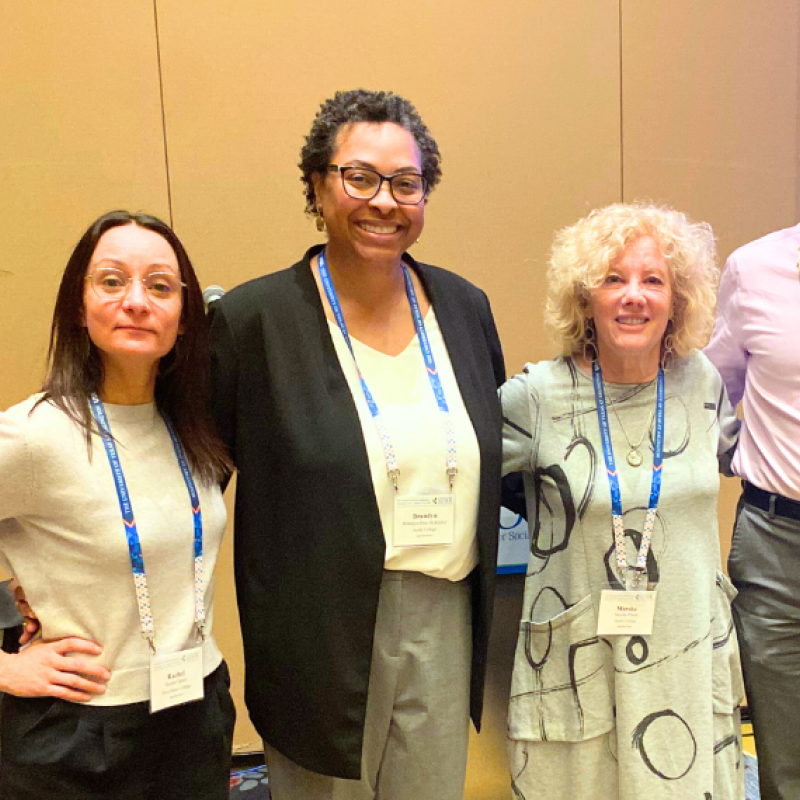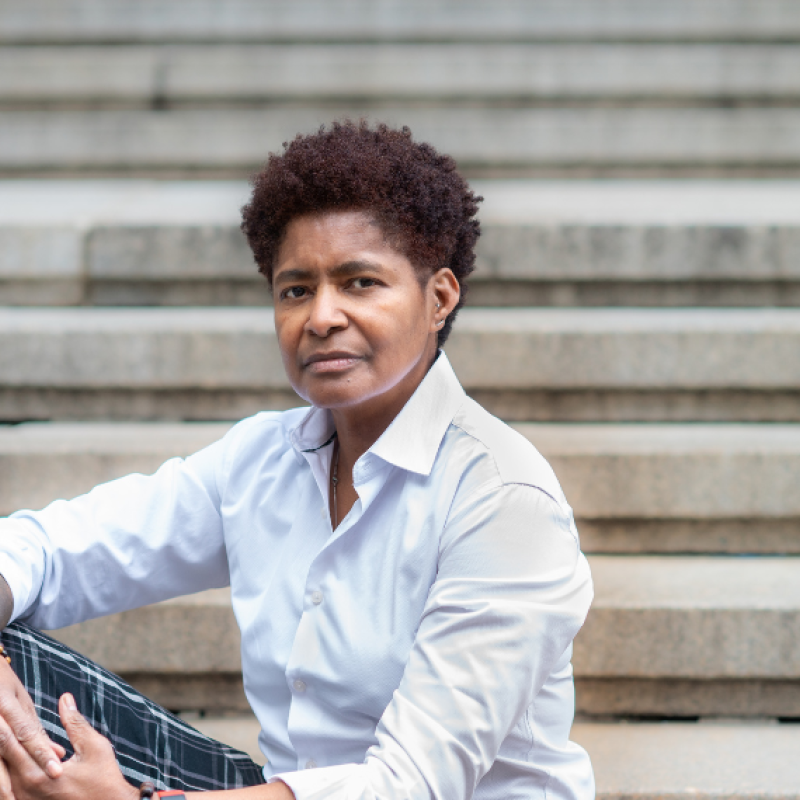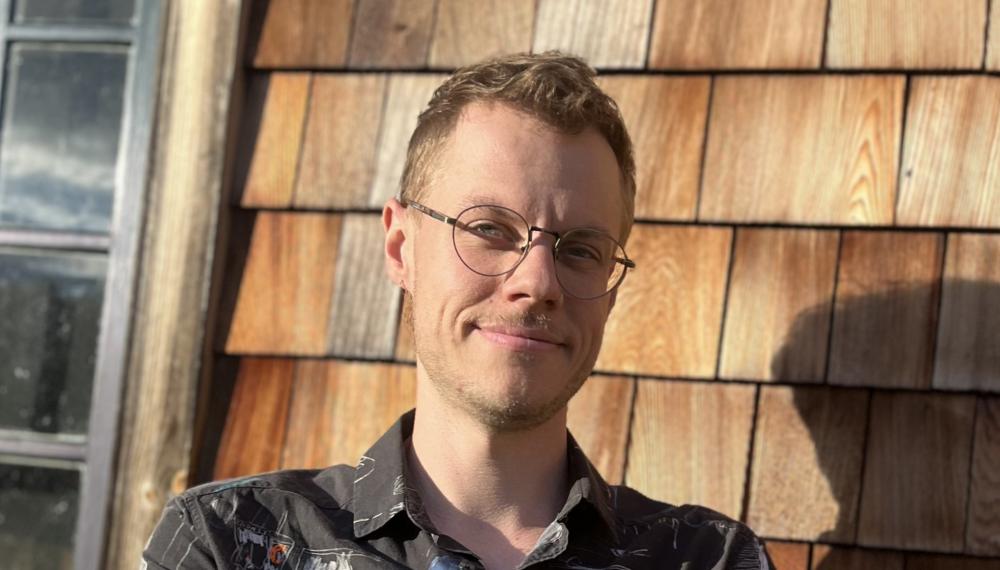
Kai Pratt’s initial post-college passion was working in programs that connected people – primarily kids and teens – with nature.
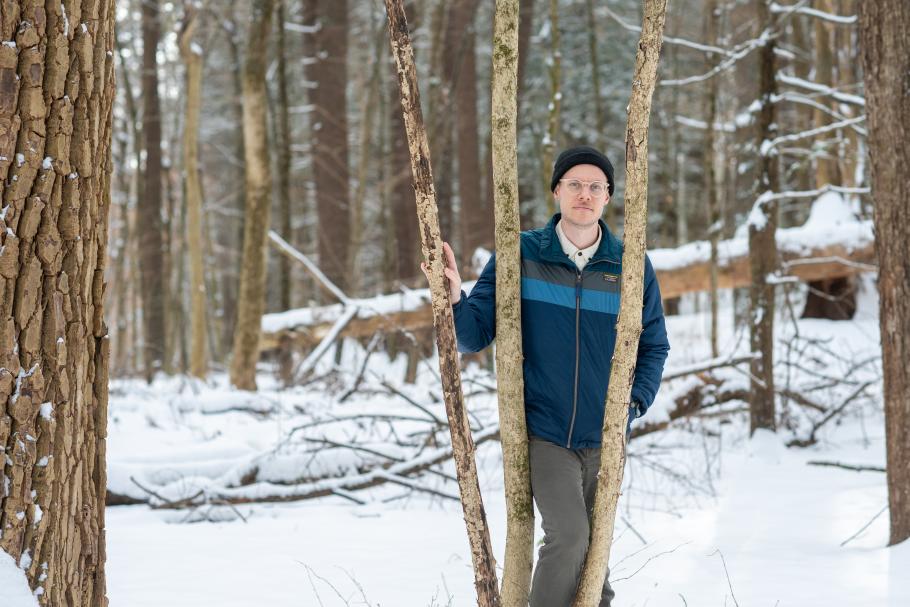
“It really started when I was in undergrad and I started doing permaculture,” a type of agriculture that emphasizes sustainability, regeneration, and a community focus. Pratt credited the gardening project he joined, created by a peer-run group at UMass Amherst, as a powerful moment in feeling truly connected to and engaged with his undergraduate community there.
This feeling of connection led the Greenfield native to staff outdoor education programs throughout the country. From his home turf in Massachusetts all the way to Washington State, Pratt spent a decade helping students get their hands dirty and learn about humanity’s relationship with the natural world.
“They weren't overtly therapeutic programs; they weren’t framed that way,” said Pratt, now an M.S.W. student at Smith College School for Social Work.
“I came to realize that building community, being outside, and a number of different aspects of that work really do contribute to people healing and whole-ing themselves and each other.”
Pratt felt himself hitting the limits of the healing work he could facilitate without clinical training. He remembers “really wanting the knowledge and experience that would make me more effective in those conversations,” he said. “Particularly with teens, I really started to see, ‘You all are holding a lot,’ and I wanted to be able to work with them on that.” That sense was strengthened when, just before the COVID-19 pandemic began, Pratt started working with unhoused youth in Western Massachusetts.
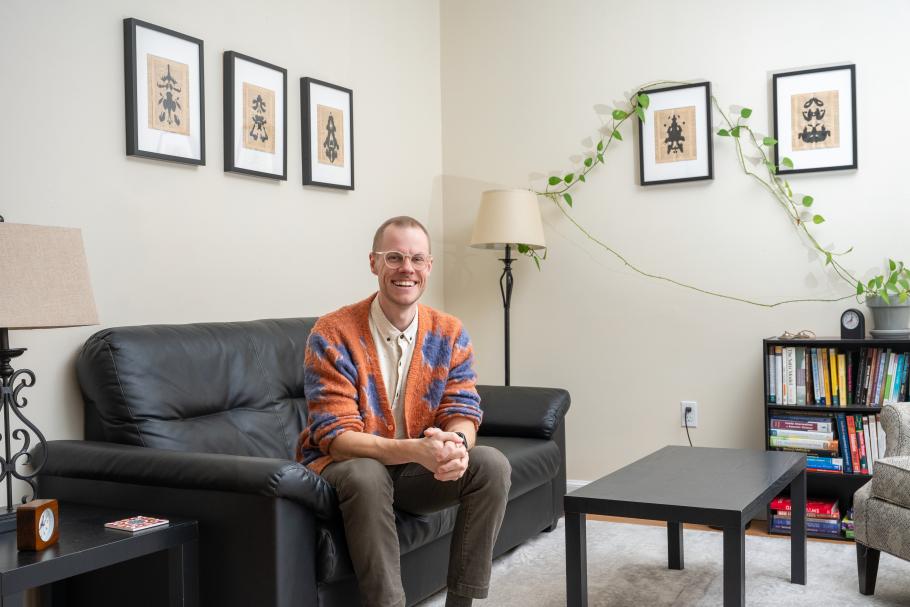
“I knew I wanted to go back to school, for a while I wasn’t sure for what,” Pratt said. “I have a lot of friends in the area who have gone through the Smith program; I started looking at it and realizing, ‘these are actually the things I want to be learning.’”
Now that he is midway through the program, that hunch has borne fruit.
“I think it’s a degree that offers a fuller picture of systems and how systems operate outside of a person but influence a person,” Pratt said. “We’re looking at class differences, we’re looking at systemic racism, we’re looking at carceral systems.”
Pratt completed his second on-campus summer and is immersed in his second-year internship at the Community Health Center of Franklin County, where he is doing individual therapy with clients there. “It's a lot of people who are low income, struggling with substance use, have some sort of court or justice system involvement or have in the past, are on medicaid or Medicare,” he said.
Pratt’s first-year internship was, at his urging, at the Franklin County Sheriff’s office, doing individual sessions and groups for incarcerated people at the jail in Greenfield.
“[The jail] feels like a strong presence in a pretty small community. It felt important to me that I better understand how those systems worked, and I feel like I really got that – a better sense of the landscape of my local community and the various layers of things that are happening,” Pratt said.
After he completes his degree, Pratt would like to continue facilitating groups, explore and examine masculinity in therapeutic work with male-identifying participants, and integrate all that he is taking away from his time at Smith with the nature-based experiences of his past professional pursuits.
“I think that in this field in particular, there’s a really heavy emphasis on a dyad, but I don't think it’s the whole story,” Pratt said. “I think a lot of people could use more community and less isolation as the starting place for navigating hard things. I like group work because of that: there’s just more people in the room and it flattens the power dynamic.”

